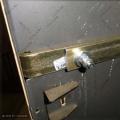Vocabulary is a set of words in a person’s native language that are understandable in meaning and used in communication. It consists of words that are constantly used in oral and written speech, as well as words that are clear in meaning during conversation or reading literature.
There are two types of vocabulary:
- Active. This is a stock of words that a person uses every day in speech when communicating with people around him.
- Passive. These are words that are not used in communication, but are familiar by ear and content.
Active and passive lexicon contain unequal word volume indicators. The active vocabulary of an adult greatly exceeds the passive one. The volume of words in both dictionaries is prone to constant change. They are able to increase if a person learns new terms, reads, develops, or decrease.
Active and passive vocabulary can decrease due to age, when words are forgotten or when they stop being used in communication. In this case, words will disappear from a person’s vocabulary or be replaced by new ones.
Estimating the exact vocabulary size of the average person is a difficult task. No one knows specifically what it should be in terms of content and number of words. The guideline in this matter is the dictionary of the Russian language by V. I. Dahl, which contains about two hundred thousand words and Dictionary Ozhegov, volume of 70 thousand Russian words.
Of course, it is clear that such a volume of words is beyond the power of even smart person. Human memory is not capable of accommodating such an amount of information without harm to health.
An interesting study was recently conducted to determine the volume of words among native Russian speakers. It was carried out in the form of testing, where those interested marked in the provided list the words they understood and used. Words were marked only if the definition was fully understood.
To improve the quality of testing and sort out unreliable information, non-existent designations were present in the lists. The presence in the subject's questionnaire of at least one non-existent word marked as familiar to him was considered unreliable information and was not taken into account.
During the work carried out, the following data were obtained:
- A person's passive vocabulary increases every year until the age of 20. Further, the rate of development decreases, gradually disappearing after 40 years. At this age and until the end of life, a person’s vocabulary remains unchanged.
- Studying at school adds up to 10 words to children's passive vocabulary every day. The student’s active and passive vocabulary is constantly growing.
- By the end of their studies, teenagers speak an average of 50 thousand words.
- School time increases the growth of word volume by almost 3 times.
- After leaving school, a person’s passive vocabulary stops growing and averages 3–4 words daily.
- At the age of 55, the vocabulary continues to decline, due to irreversible deterioration of memory and the use of some words in practice.
The study assessed the educational level of the subjects, yielding interesting findings. It turns out that people have the greatest amount of words at different times in their lives. Average special education implies the end of word growth at the age of 40, and the highest a little later - after 50 years. This 10-year gap is explained by the discrepancy between the work performed and the position held by people with different education. Some people at the age of 50 read scientific books and gain new knowledge due to the specifics of their work or at will for self-education.
It was also revealed interesting fact, which showed that subjects who completed their studies in educational institution and those who did not complete it for personal reasons have the same passive vocabulary.
Vocabulary vocabulary of adults with different levels of education:
- Passive vocabulary has the same indicators among people with secondary education and secondary special education. It varies between 70-75 thousand words.
- People who received higher education, or who have not graduated from college, have a stock of 80 thousand words in their luggage.
- Educated people, candidates of science, have a rich vocabulary of 86 thousand words, which is 6 thousand more than those who have received a higher education.
The education received, of course, affects a person’s vocabulary, but not 100%. A person himself makes a huge contribution to the development of vocabulary, constantly improving himself and engaging in self-education. Therefore, it is easy to meet a person who only graduated from school with a vocabulary several times larger than that of someone who received a higher education. The main role in this issue is played by a person’s sociability, occupation and lifestyle.
The conducted research does not provide a complete picture of the vocabulary of the average Russian person, as it contains small errors. But despite this, it helps to determine the connection between vocabulary and age and level of education.
How to expand your vocabulary
There are no universal ways to increase words in the vocabulary of your native language. Each person chooses what suits only him. To replenish your vocabulary, several methods developed by polyglots for learning a foreign language will help.
To increase passive vocabulary:
- Reading literature.
The more and more often a person reads books, the richer and more interesting his speech sounds. It is pleasant to communicate and spend time with well-read people. This is a universal way to enrich your stock of new words. The quality of the selected literature is not the least important. It is better to give preference in the choice to popular science books and classical literature, avoiding modern “soap” novels or detective stories in them; you definitely won’t find new words in the correct application.
- Be interested in the meaning of unknown words.
Always ask your interlocutor for the meaning of unclear words or new terms; do not ignore them. During communication, new information will be much easier to assimilate and can be quickly recalled if necessary. If a new interesting word was heard by radio announcers, then its meaning can be looked up in a special dictionary.
- Dictionaries.
Every literate person should have a set of dictionaries at home that need to be used periodically. This is the explanatory dictionary of V. I. Dahl, Ozhegov, as well as the “Dictionary of Stresses for Radio and Television Workers.” It will help restore gaps in stress placement and contains many interesting words.
“The Dictionary of Stresses for Radio and Television Workers” has been published since 1960. Its authors are M.V. Zarva and F.L. Ageenko. The history of creating a dictionary of accents for radio and television workers began with the release of an announcer's reference book in 1951, and 3 years later the “Dictionary of Stresses” was released. To help the announcer."
All dictionaries for radio and television workers are based on the reserves of “heavy” words accumulated in the card index during the formation of the first radio in the era of the USSR. The radio and television files were constantly being replenished. Many words were never included in dictionaries. "Dictionary of Radio and Television" contains the names of geographical names, names of works of art, surnames and first names of people.
How to expand your active vocabulary
To increase your vocabulary, you will need the ability of a person to translate words from a passive vocabulary to an active one. The following methods will help with this:
- Notes.
Write down new words along with their meanings on pieces of paper and stick them around the house in places where they will be most likely to catch your eye. This method will help you remember information more efficiently and quickly without memorizing it.
- Associative series.
To remember a word, build a suitable association for it. It can be aimed at smell, taste, motor, tactile characteristics or tied to color. The result depends on the person’s imagination and desire to consolidate the information received. The associative series helps to remember difficult words and easier to remember at the right time.
There are also exercises for developing your vocabulary. One of the most effective is the oral exercise of composing a story. To do this, you need to try to tell a small story, using only nouns, then only verbs or adjectives. This is not an easy exercise. It helps to use the existing stock of words, while refreshing them in a person’s memory.
Vocabulary is the set of all the words a person knows. It is generally accepted that a wide vocabulary is characteristic of the most educated people, as well as writers.
Active and passive vocabulary
Active vocabulary is those words that a person uses when speaking or writing. This indicator can vary greatly from person to person. Nobody knows or uses all the words of the language.
The active vocabulary of a primary school student is approximately two thousand words, by the end of the institute this figure increases at least five times! “The Dictionary of Pushkin’s Language,” which includes all the words used by the great poet in his works, contains about 20 thousand words.
Passive vocabulary is those words that a person does not use himself, but understands if he sees or hears them. As a rule, there are many more of them than words included in the active vocabulary. This includes various terms, words of limited use (jargonisms, archaisms or neologisms), simply quite rare and unusual words.
It’s funny that, with a vocabulary of about half a million words in the Russian language, no more than 6 thousand are actively used by all of us, which is about 90% of human speech, and only 10% are rarely used.
The concept of active and passive vocabulary is used in linguistics and literary criticism, as well as in educational and clinical psychology. Teachers also use it. At school they teach that you need to expand your vocabulary, and for this you need to read more. This is true. Reading – The best way replenish your passive lexical baggage. Moreover, the most pleasant, because a person follows the twists and turns of the plot, while the words are remembered by themselves. But not every book is suitable for this. We must take it  good literature, maybe classics, otherwise there is a risk of running into an author who has the lowest vocabulary: there is nothing to learn from him, you can teach him yourself!
good literature, maybe classics, otherwise there is a risk of running into an author who has the lowest vocabulary: there is nothing to learn from him, you can teach him yourself!
Another way is to look up unfamiliar words in a dictionary. In principle, it is not necessary to rush through Ozhegov’s dictionary in search of the right word– there are relevant resources on the Internet that are very convenient to use. But, although you will learn the meaning of a word in any case, you are more likely to remember it when using a paper dictionary. The search itself, which will take more effort and time, will anchor the word more firmly in the word, because it will be constantly repeated mentally while the person is searching.
Undoubtedly, a rich vocabulary is an indicator of high intellectual development person. If you have a beautiful speech, then modern world you will be perceived as a person with good education and culture, a creative person. People who have an extensive vocabulary, as a rule, command more respect in society than those who cannot “string together a few words.” Even if you have already left childhood, this does not mean that you are unable to enrich your speech - this is possible at any age.
Surely you know that reading books is useful for many reasons. This process can help improve memory, diction, and, of course, can have a positive impact on the quality of your vocabulary. Start with those writers whose work is close and understandable to you. Over time, move on to more complex works. Pay attention to text that contains interesting expressions that you would like to remember and use later. Re-read these hearing expressions - this way you will remember them better. The most interesting of them can be written down in a separate notebook.
Expand your vocabulary when communicating with smart people
If you want to expand your vocabulary with interesting participial phrases or just clever words, then, of course, you should not neglect communication with intellectuals. If you notice that the speech of the people around you is very poor, then, of course, you should understand that you will not learn the necessary skills from communicating with them. Moreover, you yourself may lose your acquired vocabulary.
Don’t be afraid to seem stupid by starting to communicate with people who know a lot of interesting information - this is one of the most effective ways increase your intellectual level, and it was unwise not to take advantage of it.
Improve your speech and vocabulary by learning new words
When you hear or notice a new word while reading, under no circumstances try to “skip” it - look up the definition in the dictionary. In addition, it is important to note for yourself in what particular turn of speech this word is used. After that, try to mentally replace it with a suitable synonym. Subsequently, having fully understood the meaning of a previously unfamiliar word, you will be able to add it to your vocabulary. To make it easier to remember, try to visualize it in your mind, adding images related to this word. Let the picture in your imagination be as rich as possible.
For our time, the speech of the mid-twentieth century can be called the standard - it is as close as possible to modern, but has not yet absorbed various jargons and barbarisms that appeared later. Therefore, it is advisable to give preference to literature predominantly from this period. The most effective books will be Russian and English classics.
It is also worth noting that there are special books that help with speech development. Let's name some of them. First of all, pay attention to “The Mastery of Broadcast Performance” by B. D. Gaimakova. First of all, the book will be of interest to people who plan to work in television and radio. However, this work will be useful for everyone else. Includes three parts that tell about the rules of public speaking, technique and culture of speech.
We advise you not to ignore N. Gal’s book “The Living and the Dead Word.” The author is a famous translator, but her work will be of interest not only to her colleagues. The work will help you find your own style, avoiding the “dead” language.

Learn a new word every day
If you enrich your vocabulary with a new word every day, then, of course, after some time you will be able to show off your new knowledge very effectively. There are many applications and sites on the Internet that offer to learn new words. There are also communities with this focus on VK. It's important to remember that you don't just need to learn unfamiliar words - they should be used in everyday life. Learn a new concept in the evening, and the next day try to apply it in a conversation with someone. This way, memorization will be much more effective.
When you hear an unfamiliar word, be sure to Google its meaning.
As soon as you hear a word whose meaning is unknown to you or is rather vague for you, remember it. To be sure, you can write it down on a piece of paper. Subsequently, at the first opportunity, look up the meaning of this word on the Internet.
Read aloud, retell, learn poems
Reading aloud, as well as memorizing poetry, is doubly useful. This way, you not only develop your memory, but also learn vocabulary and syntax. In Russian, the order of words in a sentence can be called quite free, but not everyone uses this freedom to the fullest. Almost each of us has our usual syntactic constructions, thereby limiting the lexical range. If you have a task to expand this range, then you should use a creative approach when constructing phrases. For example, if you are used to using the phrase “I want,” then try replacing it with others - “I wish,” “I would like,” and the like. Of course, reading certain works will help you easily replace previously chosen phrases.
However, often, when we start reading, we become immersed in the plot, practically not focusing on the vocabulary. As a result, the linguistic abundance of a work often passes us by. To avoid this, use this psychological trick: read books that the author wrote in the first person. When you study them slowly and thoughtfully, ready-made phrases will be stored in your memory, which you can later use when talking about yourself.
Replace simple words with complex ones that broaden your horizons
Try to use more complex words in your speech, replacing those simple words that you are used to using before. To do this, look for synonyms for any words that you regularly use. This way you will significantly enrich and diversify your vocabulary. Do not treat this task as something very difficult and requiring serious energy expenditure - this is a natural process that can continue until the end of your life.
Solve crosswords
Solving crosswords is not just fun, but also a great way to improve your vocabulary. Do not neglect this opportunity on vacation, at home, on the road. Pay attention to crossword puzzles that are published in well-known, well-established publications.

Listen to audiobooks
If you spend a lot of time driving and have little free time to read works of art and study dictionaries, then start listening to audiobooks. This technique is also useful for those people who better perceive information by ear. Don’t even doubt that if you while away the time in a traffic jam while listening to a good audiobook, these minutes will do you good.
Watch the video
Sometimes, vocabulary enrichment can occur while watching a variety of videos. We are talking about all kinds of quizzes, intellectual talk shows, and documentary projects. Also, do not discount special courses that help expand your vocabulary. This way, you can not only have a good time, but also benefit your own self-development. Of course, it is important to distinguish worthwhile materials from those you don't need. For example, if you see in a television program that the time is approaching for the next youth reality show or stupid action movie of the 90s with the corresponding translation, then it is better to devote time to something else, because such viewing will not only not bring you any benefit, but can also harm .
Notes method
Perhaps you are faced with the fact that it is very difficult for you to remember new terms. In this situation, the already mentioned “notes method” will help. Get a pack of stickers, then write a new word on one side of a piece of paper and its meaning on the other. Now put stickers around the apartment. Now “difficult” words will constantly catch your eye, and you will be able to re-read their meanings again and again until they are fully assimilated and included in your usual vocabulary.
Write
You will quickly learn to use new expressions correctly if you take up writing. To do this, of course, you don’t have to be a writer - just set aside at least half an hour a day to write some short text. This could be a simple statement of your own thoughts on one issue or another.
For example, you can write what you dream about, what people you dislike, what you can admire in another person, and the like. You can even write a multi-page article on a topic that interests you. Having started writing any text, you will have some time to think about your thoughts, thanks to which you will have the opportunity to learn how to correctly use new phrases, laconically inserting them into the text in the right place. Writing is definitely a creative activity that activates your mental potential. Naturally, this trains the brain wonderfully, allowing you to remember words that you practically never used in speech before.
The larger a person's vocabulary, the higher the likelihood that he will succeed in life.
Rich vocabulary: methods, methods and techniques for increasing it
In the modern world, beautiful and rich speech speaks of culture and good education. Society perceives a person with a rich vocabulary as an intelligent and creative person. The larger a person's vocabulary, the higher the likelihood that he will succeed in life.
Methods, methods and techniques for increasing vocabulary:
1. Think about which of the banal, hackneyed, hackneyed words and expressions you are used to using every day in standard communication situations. Write them down on a piece of paper. Have you recorded it?
Now take an explanatory dictionary or a dictionary of synonyms from the shelf. Find these words that already hurt your ears and that you are tired of hearing every day.
Study the long list of alternatives and say each of these words out loud. Which one reflects your personality? Which one is right for you personally?
Try each of them as you try on a suit and see which ones you find comfortable and cozy.
Choose a few of these words and practice by saying them out loud until they become a natural part of your vocabulary;
2. Communication is the main source of replenishing a person’s vocabulary. During a conversation, each participant replenishes his vocabulary from the arsenal of his interlocutor, and word exchange occurs between them.
Talk to friends, acquaintances, and family as much as possible. Use new words in your vocabulary; knowledge of a word is nothing without its use;
3. Read, reading books is useful. Start with those authors who are more understandable and close to your interests.
Gradually add literature that is more complex. Text where they meet interesting words and expressions that you want to remember and use in the future, reread them out loud (by reading to ourselves, we also replenish our vocabulary, but not so quickly, because in this way we only see the words, but when reading aloud, we also see them we hear and, most importantly, we pronounce it, so we remember better);
4. When you notice a new word, don't just look at its definition in the dictionary. Pay attention to the turn of speech in which this word is used, try to replace it with the appropriate synonym for yourself.
Try to rhyme, come up with as many suitable phrases as possible. The more you know about a word, the faster you will learn to use it without complicating your memory. E this will immediately affect the beauty and individuality of your speech;
5. Write. Rewrite other people's articles and your favorite ones literary works following the example of Demosthenes, who rewrote Thucydides’ History eight times in a row.
Crosswords are not just entertainment, but also a way to develop vocabulary. Use this opportunity on the road, on vacation. Choose crosswords from well-known publications or those that have a good reputation;
6. For those who spend a lot of time on the road, driving or have absolutely no free time there is a unique opportunity to use books and dictionaries develop your speech and increase your vocabulary with audiobooks.
This method will also be acceptable for an audience that perceives better by ear. In any case, while away the time in traffic jams reading good literature is much more useful and effective for your development. published




